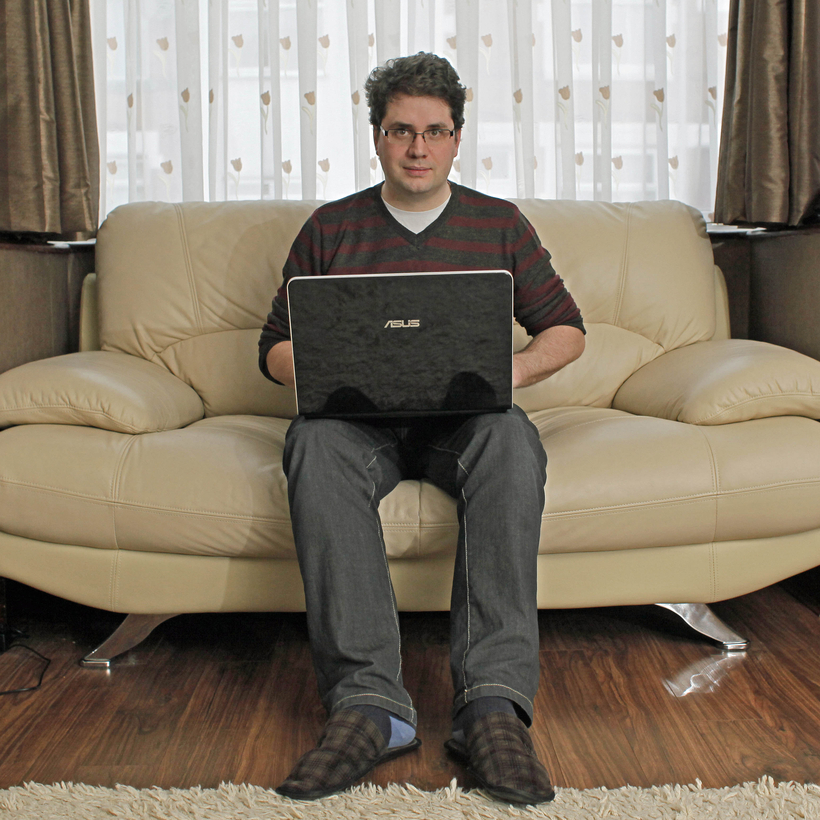Bellingcat, one of the most successful investigative-journalism operations in the world, began in the way so many great ideas do: with someone in a boring, dead-end job, staring down middle age. Eliot Higgins was working at an office in Leicester, a midsize city in the English Midlands. He was 32, with a baby on the way, settling into what looked like a life of white-collar drudgery—his one escape being online computer games. “From afar, I watched politicians and celebrities and journalists as if they were another breed,” he writes in We Are Bellingcat: Global Crime, Online Sleuths, and the Bold Future of News. “I found no place in the larger world, and had no prospect of ever having an impact.”

It was 2011, and the Middle East was exploding in the revolutions of the Arab Spring. Higgins, like many of his generation, had a childhood and young adulthood bookended by the first Gulf War and 9/11. When protesters converged on Cairo’s Tahrir Square in February of 2011, Higgins was watching the events unfold from his desk. Security forces stormed in, beating foes of the regime and driving them away. Information from official news sources was scarce. But Andy Carvin, a blogger for National Public Radio, began piecing together the story about what was unfolding by posting information from people who were there on the ground and were sharing what they witnessed via social media and messaging apps.
When Libya and Yemen erupted in protest, Higgins tried his hand at Carvin-style reporting. He wasn’t aiming to tell the whole story of what was going on, or even to break news; rather, he was trying to fact-check official narratives, adding relevant details when he could. If a government said it was in charge of a given town, and the rebels had been driven out, did that square with what the dribs and drabs of the Internet were telling him? Was this video of a government militia man posted to YouTube filmed in the town where he said it was? Higgins scoured Instagram and Google Earth, piecing together the landscape of foreign territory and finding out oftentimes that it was not.

He posted his discoveries to message boards and onto the comments sections of news sites such as The Guardian, and gradually mainstream media outlets picked up his findings. Higgins became something of a star as news cameras came to his home to interview the (by now) unemployed office worker who, with a toddler in the house, was cracking open the real story of overseas conflicts and of foreign intel operations at home—like the poisoning of former Russian-intelligence agent Sergei Skripal by Russian agents in the English city of Salisbury—that had stumped the rest of the news media and even official government agencies.
This is the story that Higgins tells in We Are Bellingcat, his riveting account of his career and the perils of this new Information Age we are living in. It is in the tradition of the best journalistic whodunits, such as All the President’s Men and, more recently, Jodi Kantor and Megan Twohey’s investigation of Harvey Weinstein’s depredations, She Said, delving into the sources and methods of how, from a computer screen very far away, Higgins covered some of the biggest stories of our time. With some like-minded peers, he eventually helped found Bellingcat—its name comes from a fable about a group of mice who conspire to put a bell around a cat so they know when it is coming—and it has become the leading open-source intelligence operation on the Internet. (The group recently started offering courses on their investigative techniques to the public.)

We Are Bellingcat is also a cautionary tale. Higgins details the degree to which all of our lives are available to any online sleuth who knows where to look, and just how much the Internet has changed since Higgins began his work. “The disinformation that is out there right now, a lot of it comes from online communities of so-called truth-seekers who really believe they are seeking the truth,” Higgins told me from Leicester. “It’s people who have lost faith in authority, and have convinced themselves they are the only ones who know the truth.”
Which is why Higgins details his methods, in his memoir and in his investigations, whether he’s uncovering the truth behind the downing of a Malaysian aircraft in Ukraine by Russian forces or unearthing evidence of chemical-weapons usage in the Syrian civil war. Anyone with a computer and Wi-Fi could do what he and his colleagues have done—or, if they were so inclined, check their facts. It is one of the foremost guiding principles at Bellingcat, Higgins writes: “The response to information chaos is transparency.”
David Freedlander is a New York–based writer

